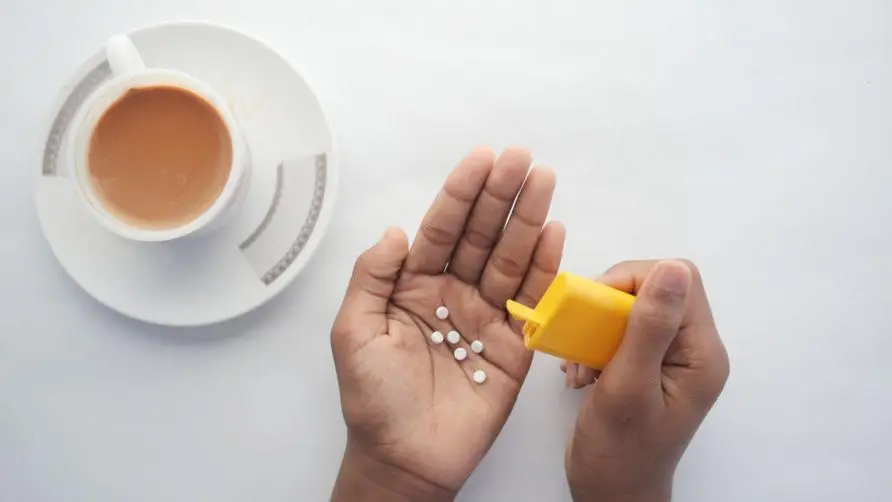Drinking zero-calorie Coke may cause cancer risk? Experts warn: Artificial sugar substitute "aspartame" may have two major hazards

“Aspartame” is classified as a secondary carcinogen! Which foods contain artificial sugar?
Could even drinking “sugar-free Coke” be harmful to the human body? The International Agency for Research on Cancer (IARC), the cancer department of the World Health Organization (WHO), recently announced that the artificial sugar substitute “Aspartame” (Aspartame) may be classified as a potential carcinogen, which is related to mobile phone radiation, pickles, Pesticides, gasoline, etc. are also classified as “Category 2B carcinogens”, and this decision is widely believed to have an impact on industries such as food manufacturing and food retail.
What is aspartame? After decades of research into artificial sweeteners (ASW) to reduce the incidence of obesity and diabetes, aspartame was discovered in 1965 and finally entered the food market in 1981. Aspartame is 150-200 times sweeter than sugar, but has almost zero calories, so it is widely loved by consumers who eat healthy. Aspartame is found in more than 6,000 products worldwide, and the common ones in daily life are as follows:
Diet soda/cola, including Diet Coke.
Sugar-free gum.
Sugar-free diet drinks.
Low-sugar condiments, such as “sugar-free syrup” and other products.
Sugar-free gelatin, which is more common in sugar-free jelly.
Cough drops.
Sugar-free desserts, such as cakes, candies, etc.
Baked goods.
Although most food and beverage products containing aspartame are promoted as “healthy” or “weight loss” alternatives to sugary products, the ability of these products to reduce the risk of diabetes or obesity has never been proven. Studies have shown that the flavor of sugar-free drinks with aspartame added may increase hunger and lead to weight gain.
Aspartame’s 3 chemicals are extremely harmful to the liver! Study reveals: Overdose may cause 10 types of cancer
As for whether aspartame causes cancer? Research shows that after consuming aspartame, the chemicals contained in it will be hydrolyzed and absorbed in the gastrointestinal tract. This process will lead to the release of “methanol”, “aspartic acid” and “phenylalanine”; among them, the metabolism of methanol It begins in the liver and is first oxidized to formaldehyde and then again to formic acid. In addition to causing direct damage to the liver, methanol is also directly toxic to liver cells and is carcinogenic.
Multiple studies have confirmed that aspartame may indeed pose a potential cancer risk. For example, one animal experiment found that exposure to aspartame early in life increased the risk of cancer in mice later in life. In addition, a study initiated by the University of Paris in France confirmed that subjects who consumed aspartame were found to have a particularly high risk of breast cancer and obesity-related cancers, including colorectal cancer, gastric cancer, liver cancer, oral cancer, throat cancer, Esophageal cancer, ovarian cancer, endometrial cancer and prostate cancer, etc.
This study supports the impact of aspartame on the risk of certain cancers. A Paris University research team said that although aspartame does not seem to affect the risk of pancreatic cancer, men who consume aspartame are more likely to develop non-Hodgkin’s lymphoma and multiple myeloma. The probability is greater.
Aspartame harms more than just cancer? Beware of fetal dysplasia and neurological diseases
In addition to potential cancer risks, excessive intake of aspartame can also cause other health effects. Research from Nutrients shows that consuming artificial sweeteners during pregnancy may increase the risk of premature birth and allergic diseases later in life. In addition, artificial sweeteners may also lead to adverse glucose and insulin tolerance, changes in gut microbiota composition, weight gain, and increased risk of type 2 diabetes in the fetus after birth.
Exposure to aspartame can also cause various neurological effects, including neurological and behavioral disorders, such as headaches, involuntary convulsions and depression. These effects are attributed to the metabolism of aspartame, resulting in the production of phenylalanine, aspartate, and methanol, all of which can cross the blood-brain barrier and interact directly with neurotransmitters.
In addition to its direct effect on the central nervous system, the interaction between aspartame and intestinal microbiota may also lead to the release of “corticosterone” and “adrenocorticotropic hormone” (ACTH), which have important effects on the body’s circadian rhythm and hormones. Adjustments may have serious consequences.
Could just drinking zero-calorie Coke cause cancer? US FDA: Drinking more than 18 cans a day is risky
Contrary to the International Agency for Research on Cancer’s announcement, the U.S. Food and Drug Administration (FDA) and the American Cancer Society (ACS) consider aspartame safe for human consumption. Robert Rankin, chairman of the International Committee on Calorie Control, further stated that the International Agency for Research on Cancer’s statement lacked background evidence. “In fact, aspartame is one of the most widely studied food ingredients, and the legitimacy of being classified as a carcinogen is really open to question. "
According to the US FDA, the acceptable daily intake (ADI) for aspartame is 50 mg/kg, while European regulators recommend an intake of 40 mg/kg for adults and children. According to the FDA’s acceptable daily dose of artificial sweeteners, an adult weighing about 68 kilograms must drink more than 18 cans of zero-calorie Coke a day for aspartame to cause serious negative health effects.
In general, if you take aspartame excessively and become dependent on it, the impact on your overall health is not as great as imagined. However, it is recommended that the public should not rely too much on artificial sweeteners when losing weight. In fact, studies have proven that sugar substitutes are not necessarily healthier than sucrose; on the contrary, some zero-calorie drinks may even increase the risk of obesity. If you have concerns about the use of aspartame, you should also consult a nutritionist or physician in advance to avoid overdose and harm to the body.
Source:
Aspartame - Calorie Control Council
Aspartame ingestion and headaches: a randomized crossover trial
Aspartame—True or False? Narrative Review of Safety Analysis of General Use in Products
Artificial sweeteners and cancer risk: Results from the NutriNet-Santé population-based cohort study
Further reading:





